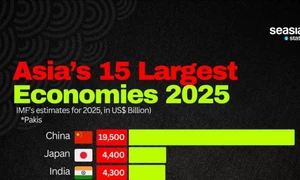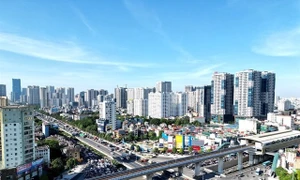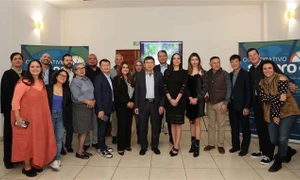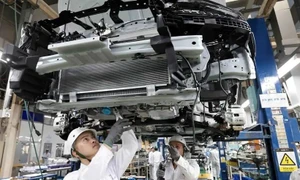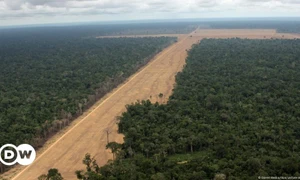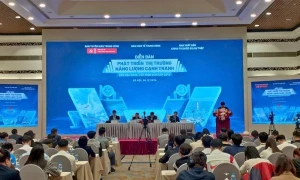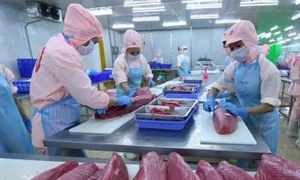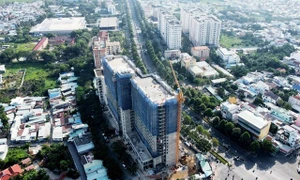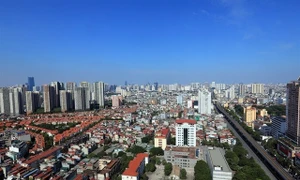
A resolution adopted at the fifth session of the 13th Party Central Committee on agriculture, farmers, and rural areas by 2030 with a vision to 2045, affirmed that agriculture, a pillar of the economy, must be developed following green, organic, and circular practices, as well as market demands.
Vietnam wants to lead agriculture in the world, boasting a modern, effective, and environmentally friendly agricultural processing industry under its sustainable agriculture and rural development for the 2021-2030 period with a vision to 2050.
Going green is urgent to ensure that the sector will maintain its position in the global food security map, and meet the increasingly stringent requirements of importers.
Shifting the mindset
Vietnam is promoting its agricultural restructuring, shifting from the mindset of agricultural production to that of a holistic agricultural economy, and green and circular agriculture, gradually changing its production models to satisfy green growth and consumption.
Green agriculture aims to improve farm produce competitiveness, develop technologies to treat and recycle by-products and waste, stabilise the economy, and better local livelihoods. At the same time, it must conserve environmental resources and the agricultural ecosystem as well as ensure the sector’s sustainability, contributing to green economic development.
Farmers across the nation have developed circular production models, including rice-clam worm-crab farming in Hai Duong province, rice-shrimp, and rice-fish farming in Bac Lieu and Ca Mau. Particularly, farmers in the Central Highlands region have made bio-fertilisers from by-products from coffee farms and orchards instead of burning them.
Localities have shifted to the use of organic fertilisers, and biological plant protection drugs, which are at lower costs but show production efficacy.
Loc Troi Group JSC based in the Mekong Delta region has pledged to help local farmers with sustainable development by building and instructing them in mechanized cultivation, helping save costs and ensure stable incomes for the peasants.
Long-term vision & concrete actions
The agricultural sector, despite its important role in the economy, has emitted a large amount of carbon dioxide into the environment. Nguyen Thi Lan, a National Assembly deputy, has said Vietnamese agricultural products will lose their competitive edge in foreign markets since carbon tax could be levied on them if there are no concrete actions put in place for agricultural production in tandem with greenhouse gas emissions reduction.
Lan suggested the Government, ministries, and sectors study the impact of regulations on Vietnamese exports to pen rational response measures to back farmers and enterprises. Incentives should be sketched out to encourage them to engage in the carbon market for sustainable development on the base of the lessons learned from the EU countries and the US.
The agricultural sector is re-building the emissions structure of plantation and husbandry. Notably, the forestry industry, for the first time, completed all procedures to transfer its emission reduction results and gained tens of millions of US dollars from selling carbon credits.
Additionally, the implementation of one million hectares of high-quality and low-emission rice cultivation project also helps realise Vietnam’s commitments to climate change response, thus meeting the requirements of its importers.
Minister of Agriculture and Rural Development Le Minh Hoan said that along with support policies for cooperatives, the Vietnam Bank for Agriculture and Rural Development will have specific credit packages for businesses and cooperatives joining the project.
According to the Office for Business Sustainable Development Director under the Vietnam Chamber of Commerce and Industry, agriculture poses a huge risk and has a large need for capital. Therefore, adjustments should be made to the land use policy to attract more investments in the sector.
To access green finances, agricultural firms must apply advanced technologies to reduce emissions, such as genetics and irrigation, helping the sector go green.
Chairman of the Vietnam Pesticide Association Nguyen Van Son recommended the Government promote the transfer of technology to produce biological plant protection drugs, study technologies, and management, registration, and business policies for the drugs from other countries.
Director of the Plant Protection Department under the agriculture ministry Huynh Tan Dat said as Vietnam is targeting to increase the use of biological plant protection drugs, and organic fertilisers to 30% each by 2030, the ministry will review all mechanisms, policies, and legal documents to encourage organisations and individuals to study and apply biological and organic products./
